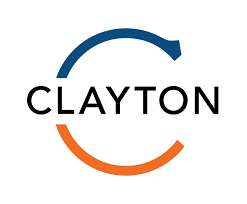
DEI Hiring: The School District of Clayton
Incidents
The School District of Clayton states in its Equity and Excellence framework that it will use a “racial equity framework to design and implement processes for recruiting, hiring and retaining a diverse workforce capable of ensuring and sustaining academic progress for a racially, ethnically and socially diverse student body.”
It continues: “The human resource priority is a diverse and culturally responsive/effective staff that understands issues of equity while providing our students with rich and rigorous instruction.”

According to the district’s 2019-2020 Equity and Excellence Summary Report, the district states that it will “continue to examine the hiring process to make sure they are not biased” and “have ensured that in the initial, assured interview, all candidates are asked about their background and experience with diversity.” The document also states that the district’s goal is to “increase our staff population diversity to better represent our student population.”

The report also states that as part of the district’s Diversity Recruitment & Networking Fair, “all participants interviewed with an administrator from Clayton and also spent time networking with members of Clayton’s Affinity Group.” It also adds that “candidates that attended the event received personal invitations to apply for positions as they were posted.”


On January 6, 2024, the district offered a Diversity Recruitment and Networking Fair with a goal to “recruit and build a faculty that improves staff diversity in our schools.”
The school district’s Anti-Bias Antiracist (ABAR) Presuppositions framework states that it is “impossible to deny that injustice and inequity are ingrained in our systems” and that it is urgent to “dismantle inequities and systemic policies and procedures that have historically and persistently harmed Black students and other students of color.”
According to the framework, the district strives to have equity literacy, which is “having the knowledge and skills to disrupt and dismantle inequities within our own spheres of influence for the betterment of our students, staff and greater community.”
The district states that being literate in equity includes the following:
- “recognize and disrupt white supremacy that results in layers of systemic racism.”
- “seek out fair redistribution of opportunity and access that have previously and presently been denied.”
- “believe that affirming a student’s culture, history and identity is more important than relying solely on numerical data.”
- “affirm students’ intersectional identities and experiences.”
- “believe equity-centered curricula balance the truth about injustice and oppression with the resilience, joy, and resistance of all kinds of humans; past and present.”
- “constantly review and revise our practices and curricula based on nationally-recognized
- antiracist/anti bias standards at every grade level.” [Learning for Justice standards]

Stay Informed
